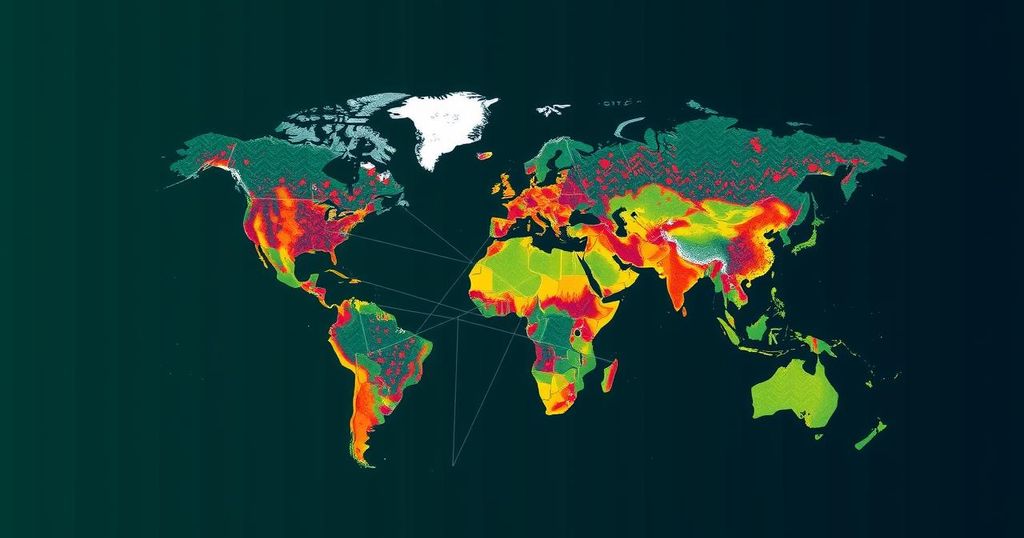Greenhouse Gas Emissions Reach Alarmingly High Levels Ahead of Climate Talks

Recent reports by the UN’s WMO reveal alarming levels of greenhouse gases, primarily due to severe wildfires and unsustainable industrial practices. As carbon dioxide levels reach 420 parts per million, the potential for accelerated climate change through feedback loops intensifies, stressing the need for urgent action ahead of the upcoming international climate negotiations.
The alarming rise of greenhouse gases in our atmosphere is underscored by recent data from the United Nations’ World Meteorological Organization (WMO), particularly in light of the severe wildfires witnessed last year. These wildfires have exacerbated the accumulation of harmful emissions, indicating a possible detrimental feedback loop as global temperatures continue to climb. Notably, the concentration of carbon dioxide reached levels akin to those of 2-3 million years ago when temperatures were significantly higher, resulting in markedly elevated sea levels. Furthermore, unsustainable fossil fuel and cement production practices have led to emissions that outpace the Earth’s natural ability to absorb these gases through oceans and forests, creating a concerning excess in the atmosphere that can persist for centuries.
As the world approaches the 29th United Nations climate negotiations scheduled for next month in Azerbaijan—a nation characterized by its authoritarian regime and heavy reliance on oil exports—the urgency of addressing climate change has never been greater. Scientists globally warn that the continued dependence on fossil fuels predicates a future of inevitable temperature increases, with current levels already at approximately 1.2 degrees Celsius above preindustrial averages. The effects of rising temperatures are observable, including increased glacier melting, elevated sea levels, and significant ecological disruptions, affecting human life and biodiversity. The WMO’s recent bulletin reveals that human-induced emissions remain stubbornly high, fueled by catastrophic events such as the unprecedented wildfires in Canada and Australia.
The current state of greenhouse gas emissions presents significant challenges ahead of the upcoming climate talks. With carbon dioxide levels hitting 420 parts per million, the evidence of human-induced climate change is overwhelming. The interplay of rising temperatures and increased emissions from environmental sources poses critical risks to societies worldwide. Immediate and concerted action is required to mitigate these effects and steer our planet toward a more sustainable future.
Original Source: www.rfa.org






